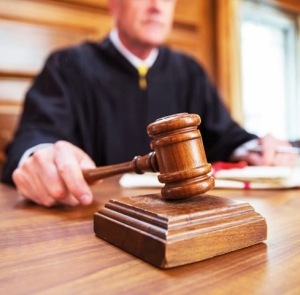Survey Shows 55% Distrust Supreme Court Appointment Process in Georgia
Fifty-five percent of the Georgian-speaking population, interviewed by phone, said they do not trust the process of the appointment of judges at the Supreme Court of Georgia, according to the survey conducted by Caucasus Research Resource Centers (CRRC) Georgia.
The results of the survey, conducted on January 30 - February 10, 2020, were reported by the Institute for Development of Freedom of Information (IDFI) and suggest that people in Georgia are divided between trusting and distrusting judicial institutions. While more than half of the public have heard about the Supreme Court appointment process, they have little trust in it, and largely have not heard of the new judges.
At the beginning of September 2019, the High Council of Justice (HCOJ) provided a list of 20 Supreme Court Justice candidates to the Parliament of Georgia for approval. In September-November 2019, parliament conducted the hearing process for candidates, and on December 12, 2019, 14 candidates out of 20 were appointed to the Supreme Court.
The judges were supported by the parliamentary Georgian Dream (GD) majority; however, the opposition parties, including the United National Movement (UNM), European Georgia and former ruling party lawmakers, refused to participate in the voting, claiming a number of judges lacked transparency and trust from civil society.
Georgian Parliament’s Legal Issues Committee completed interviews with 20 candidates of the Supreme Court judges in September 2019. A lengthy process of judicial selection, which started in May 2019, aimed at increasing the number of the Supreme Court judges from eight to 28. Interviews with the candidates at the Parliament’s Legal Issues Committee were strongly criticized by the opposition, civil society organizations and non-judge members of the High Council of Justice, and were often held amid protest rallies.
The survey conducted by CRRC Georgia revealed that the majority of the Georgian-speaking population (63%) reports that they have heard about the hearings in parliament for Supreme Court candidates, and more than half of the population (54%) says that they are aware of the outcomes of the hearings. More than half (55%) of those who have heard about the appointments report that they do not trust the process. Similarly, more than half (53%) of the people who had heard of the process think that parliament carried out the appointment process unfairly.
When asked whether the justice system will improve, stay the same or get worse after appointment of the candidates as Supreme Court judges, 26% of the adult Georgian population who were interviewed reported that the appointment of the 14 candidates will improve justice in the country, while 26% think that the state of justice will stay the same and 20% believe it will get worse.
When asked to name their top three important events of autumn/winter 2019-2020, only 3% of the Georgian-speaking adult population named the appointment process of Supreme Court justices. The most commonly named events were the protests sparked by the failure to pass a fully proportional electoral system (13%), Georgian doctor Vaja Gaprindashvili’s abduction by the South Ossetia occupation forces (10%), and the mass arrests of the above-mentioned rally participants (10%). 49% of respondents could not identify a most important event during the period at all.
To note, the OSCE Office for Democratic Institutions and Human Rights (ODIHR) said in its second monitoring report published in January 2020 that while legal reforms regulating the appointment of Supreme Court judges in Georgia are an important step toward improving the independence of the judiciary, they fail to ensure an impartial process based on clearly defined and objective criteria without the influence of partisan politics.
The organization said that the final plenary vote on the judicial appointments took place amidst a political crisis, a boycott by the opposition, and widespread calls for an adjournment.
ODIHR’s monitoring team observed the whole process of the appointment of judges, including the hearings of the 20 HCJ nominees, the committee vote, and the final plenary vote. Despite some positive aspects, their overall assessment found that neither the HCJ nor the parliament had taken sufficient measures to ensure objectivity, fairness, or consistency during the selection process.
By Tea Mariamidze
Image source: thedailybeast.com












